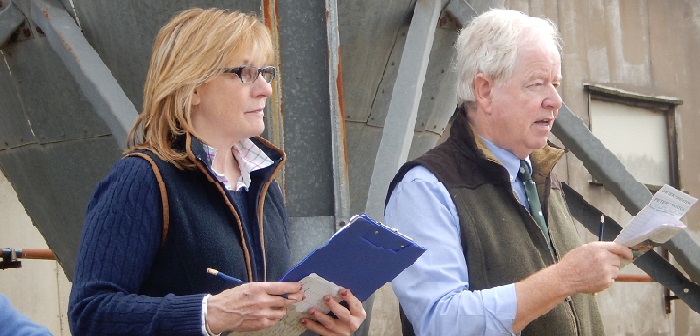Although the SPP put on another 0.58p this week to stand at 157.57p, signs are emerging that prices seem to be heading for a plateau rather than continuing to climb the price staircase.
German prices have in the main stood on at 1.48 EUR and the value of the Euro is also unchanged trading at 85.9p on Friday.
Weekly contribution prices look as though they will also be holding their ground and are between 146p and 163p, depending on who and where you are.
Spot bacon demand remains fickle with one off loads of non-farm assured spot baconers trading in the 140p – 142p/kg range, although regular sellers are closer to 150p/kg but still well below cost of production.
Cull sow prices are still on the drag showing very little sign of improving with most traded between 60p – 63p/kg, although sellers of large loads were able to obtain a modest premium over and above this level in some cases.
This puts the average value of sows at around £85/head compared with an average of £112/head this time last year, so there is still a lot of ground to be made up to put prices back in the black.
Weaner values have however improved to some extent with the latest AHDB 7kg average on an ex farm basis £38.76/head helped by a relatively firm SPP.
Buyers however are remaining cautious, especially in the light of high cereal and protein prices and the prospect of expensive straw at harvest time for those producing RSPCA assured pigs.
Feed ingredients which are the cornerstone of the profitability or otherwise for pig producers saw grain futures prices slightly dearer on the week, with July feed wheat quoted at £202/t and September at £173/t.
Spot exfarm feed wheat has remained at last week’s level of £191.9/t. Barley futures prices are little changed with deals agreed for August delivery at £158/t.
Proteins are significantly dearer with Hipro soya for August – October delivery up from £351/t a week ago to £385/t but longer months look better value with May – October 2022 traded at £357/t.
Rapemeal prices have been around the £236/t mark for August – October delivery.
And finally, according to recent reports worrying signs are emerging that the EU are planning to draw up legislative proposals by 2023 to phase out and finally ban the cage system for farm animals, which may include farrowing crates for pigs.
The European Citizen Initiative (ECI) backed by over 1.4 million signatures from throughout the EU has also received overwhelming support for a ban on cages from the European Parliament.
It will be interesting to see what the official definition of a ‘cage’ is and to what extent this will lead to the wholesale replacement of intensive farrowing systems or if derogations will be granted.
The thinking behind these proposals should be available in an upcoming impact assessment due to be completed before the end of 2022.
Further public consultations will also be carried out, but it looks as though major changes to indoor units could be on the menu as early as 2027.
Although the UK is no longer in the EU, rather than adding to the financial burdens already being borne by the UK pig industry, hopefully the high welfare standards already in place in this country will be taken into account.




